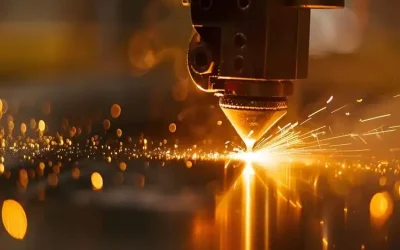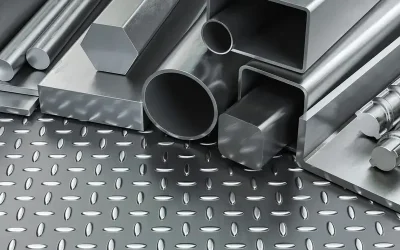- Ana Sayfa
- Water Pipes
Water Pipes
Water Pipes – Materials, Sizes, Pressure Ratings & Applications
Water pipes are among the most essential components in modern infrastructure, designed to transport water safely and efficiently in residential water pipe systems, commercial water supply networks and industrial water pipelines. From drinking water pipes in homes to industrial water pipes in factories and power plants, different materials and standards are used to ensure reliability, hygiene and long service life.
HL Metal supplies a comprehensive range of steel water pipes, galvanized water pipes, stainless steel water pipes and carbon steel pipes for large-diameter water transmission pipelines. For project-based solutions, you can combine this page with:
- Industrial Pipes – Carbon & pressure pipe solutions
- Cold Rolled Steel Pipe – Thin wall & precision water lines
- Galvanized Tubes – Outdoor & fire water pipes
- Stainless Steel Pipes – Potable & hygienic water systems
- Custom Pipes – Project-based water pipe fabrication
- Laser Cutting Tube & Hollow Section – Precise openings & branches
What Are Water Pipes?
Water pipes are pressure-rated pipelines designed to carry cold and hot water from the source to end-users. Depending on the project, they may be designed as underground water pipes, above-ground water lines, potable water pipes or industrial process water pipes.
Materials such as carbon steel water pipes, cold rolled steel pipes, galvanized pipes for water, stainless steel water pipes, PVC, CPVC, PEX and copper are selected according to:
- Working pressure and temperature of the water pipeline
- Water quality (potable, industrial, seawater, demineralized)
- Installation method (buried, tunnel, pipe rack, shaft, shaft-less)
- Required service life and maintenance strategy
HL Metal supports complete water pipe systems with carbon steel and stainless options, combined with cold rolled steel pipes for thin wall, high-precision water lines and galvanized tubes for outdoor networks and fire water rings.
Water Pipes – Technical Specifications by Material
The table below summarises the main water pipe specifications for different materials, including diameter range, pressure rating, working temperature, standards and typical applications.
| Material | Nominal Diameter (DN / mm) | Wall Thickness Range (mm) | Pressure Rating* | Temperature Range | Standard Lengths | Connection Methods | Key Standards | Typical Applications |
|---|---|---|---|---|---|---|---|---|
| Carbon Steel | DN15 – DN1200 (21.3–1200 mm) | 1.5 – 16.0 | PN10 – PN64 / Sch 10–160 | -20°C to +400°C | 6 m, 12 m | Butt weld, socket weld, flanged, grooved | ASTM A53/A106, EN 10216/10217, DIN | Municipal mains, fire lines, industrial/process water |
| Galvanized Steel (HDG) | DN15 – DN600 (21.3–610 mm) | 1.5 – 10.0 | PN10 – PN25 / Sch 10–80 | -20°C to +200°C | 6 m | Threaded, flanged, grooved, welded | EN 10255, ASTM A53 + ASTM A123 (zinc) | Outdoor plumbing, irrigation, general water supply |
| Stainless Steel (304/316/316L) | DN10 – DN600 (6–610 mm) | 0.5 – 20.0 | PN10 – PN64 / Sch 5–160 | -40°C to +400°C | 6 m, 12 m | TIG/MIG weld, clamp (tri-clamp), flanged, compression | ASTM A312/A269, EN 10217-7 | Potable water, food & pharma, corrosive environments |
| PVC (uPVC) | DN15 – DN630 | 2.0 – 30.0 (class dependent) | PN6 – PN16 | 0°C to +60°C | 5.8 m, 6 m | Solvent cement, rubber ring (RRJ), flanged | EN 1452 / ISO 1452, ASTM D1785 | Cold water supply, irrigation, drainage |
| CPVC | DN15 – DN300 | 2.0 – 19.0 | PN6 – PN25 | 0°C to +90°C | 3 m, 5.8 m | Solvent weld, flanged | ASTM F441/F441M, ISO 15877 | Hot & cold potable water, building plumbing |
| PEX (Cross-linked PE) | DN12 – DN63 | 2.0 – 10.0 | PN10 – PN20 | -20°C to +95°C | Coils: 50–300 m | Crimp, press, push-fit, manifold | ISO 15875, ASTM F876/F877 | Domestic hot/cold water, underfloor heating |
| Copper | DN8 – DN108 (Ø6–108 mm) | 0.8 – 3.0 | PN10 – PN25 | -40°C to +200°C | 5 m | Brazing, soldering, press-fit, compression | EN 1057, ASTM B88 | Potable water, heating, hospital & lab plumbing |
| Ductile Iron (DI) | DN80 – DN1200 | Class K7 – K12 | PN10 – PN25 | -10°C to +120°C | 6 m | Tyton (push-on), flanged, restrained joints | EN 545, ISO 2531 | Municipal mains, transmission & distribution |
*Pressure ratings are indicative. Final design must be confirmed according to relevant standards, project specifications, flowing media, temperature and safety factors.
Types of Water Pipes
Water pipe systems are classified according to material, intended use and installation method. HL Metal focuses on high-quality steel-based solutions and integrates them with cold rolled steel pipes , galvanized tubes and stainless steel pipes .
1. Steel Water Pipes
Steel water pipes are known for high strength, durability and the ability to handle high pressure. They are often used in:
- Large-diameter municipal water pipelines
- Irrigation projects and agricultural water supply
- Industrial cooling and process water systems
Both hot-rolled industrial pipes and cold rolled steel water pipes can be used, depending on wall thickness, diameter and required tolerance.
2. Stainless Steel Water Pipes
Stainless steel water pipes offer excellent corrosion resistance and hygiene, making them ideal for:
- Potable water pipes and drinking water distribution
- Food, beverage and pharmaceutical water systems
- Marine and chemical plant water lines
Common grades include 304, 316 and 316L. Learn more on our stainless steel pipes page .
3. Galvanized Water Pipes
Galvanized water pipes are carbon steel pipes coated with zinc to minimise rust and corrosion. They are suitable for:
- Cold water pipes in buildings and industrial facilities
- Outdoor water pipes exposed to weather
- Irrigation and sprinkler networks
See our galvanized tubes product page for more information.
4. PVC & Plastic Water Pipes
PVC, CPVC and PEX are widely used as plastic water pipes due to their flexibility, light weight and corrosion resistance, especially for underground water pipes and domestic plumbing.
5. Copper Water Pipes
Copper water pipes have been a standard choice for hot and cold water in buildings thanks to their corrosion resistance and antibacterial properties, especially in hospitals and residential projects.
Applications of Water Pipes
Water pipes are used in a wide range of applications, from small-diameter domestic lines to large-diameter water transmission pipelines in cities.
Residential Water Pipes
- Supply lines for kitchens, bathrooms and outdoor taps
- Potable water pipes for safe drinking water
- Hot and cold water pipes for domestic use
Industrial Water Pipes
- Process water supply in factories and refineries
- Cooling systems in manufacturing plants and power stations
- High-pressure industrial water pipes and ring mains
Commercial Water Pipes
- Plumbing networks for office buildings and shopping malls
- Hospital and laboratory water distribution systems
- Firefighting and sprinkler water supply
Municipal Water Pipelines
- Transmission lines from treatment plants to storage reservoirs
- Distribution networks and underground water pipes in urban areas
- District water supply pipes for towns and villages
Agricultural Water Pipes
- Irrigation systems and drip irrigation mains
- Livestock water supply and trough networks
- Rural water pipelines in agricultural regions
For mixed projects combining water pipes with structural steel and pipe supports, you can also refer to our industrial pipes and cold rolled steel pipe product families.
Key Features of Quality Water Pipes
When selecting water pipelines, it is critical to evaluate the following features to ensure performance, safety and long service life:
- Corrosion resistance: Stainless steel, galvanized steel and PVC water pipes provide excellent resistance against rust and aggressive water chemistry.
- Pressure rating: High-pressure steel water pipes and industrial water pipes can safely handle elevated pressures in process and fire systems.
- Temperature resistance: Hot water pipes and district heating lines require materials like carbon steel, stainless steel or copper.
- Hygienic standards: Drinking water pipes must comply with international health regulations and avoid contamination.
- Durability: The pipe system must withstand external loads, soil movement and environmental conditions.
For thin-wall, high-precision lines, cold rolled steel pipes are often preferred; for outdoor networks and fire water loops, galvanized tubes provide an effective solution.
Water Pipe Sizes & Standards
Water pipe sizes are selected based on flow rate, allowable pressure loss and system layout. Typical ranges include:
- Diameter range: 6 mm up to 1,200 mm and above for large mains
- Standard lengths: 6 m or 12 m for steel pipes; 5–6 m for PVC; coils for PEX
- Wall thickness: Determined by pressure class (PN rating) or schedule (Sch 10 – Sch 160)
Common standards used in water pipeline design include ASTM, EN, DIN and ISO specifications for both pipes and fittings. HL Metal supplies steel water pipes in accordance with:
- ASTM A53 / A106 for carbon steel piping
- EN 10216 / EN 10217 for pressure pipes
- API and other project-specific standards upon request
For precision and thin-wall sections, see also our cold rolled steel pipe and tube laser cutting services.
Installation of Water Pipes
Proper water pipe installation is essential for leak-free, long-term performance:
- Site preparation: Ensuring the trench or installation area is properly graded, compacted and free of sharp objects.
- Pipe laying: Aligning and supporting pipes according to the design, respecting minimum bending radii and slope.
- Joining methods: Welding, threading, flanging, grooved couplings or compression fittings depending on the pipe material and standard.
- Testing: Hydrostatic pressure tests and leak tests before commissioning the water pipeline.
- Backfilling: Using suitable backfill materials and compaction to protect underground water pipes.
HL Metal can deliver water pipes cut-to-length and prepared for laser-cut branches, holes and connections , reducing onsite installation time and welding work.
Maintenance & Replacement of Water Pipes
Regular water pipe maintenance helps prevent leaks, corrosion, blockages and unplanned shutdowns:
- Periodic inspections for corrosion, coating damage and mechanical deformation
- Cleaning and flushing to remove sediment and biofilm buildup
- Monitoring for pressure drops and leakage indicators
- Timely replacement of damaged sections or aged pipelines
Water pipe replacement is recommended when:
- The pipe material has significantly degraded or corroded
- Frequent leaks or failures occur
- System upgrades require higher flow capacity or pressure class
When upgrading existing lines, HL Metal can provide new industrial water pipes and cold rolled steel pipe solutions compatible with your current network.
Water Pipe Manufacturers, Suppliers & Price Factors
Selecting a reliable water pipe supplier ensures product quality, compliance with standards and trouble-free installation. Reputable suppliers provide:
- Full range of water pipe types and materials for different applications
- Technical support, sizing and material selection assistance
- Compliance certificates for water pipe specifications and standards
- Competitive water pipe prices for project and bulk orders
Water pipe prices depend on:
- Material type (carbon steel, cold rolled steel, stainless steel, galvanized, plastic, copper)
- Diameter, wall thickness and pressure rating
- Coating or lining (galvanized, epoxy-lined, cement-lined, PE-coated, etc.)
- Order quantity, packaging type and delivery location
A detailed water pipe price list and technical offer from HL Metal can be prepared for each project, integrating: industrial pipes , cold rolled steel pipes , galvanized tubes and stainless steel pipes in a single export-ready package.
Request a Water Pipe Quotation
Water pipelines play a critical role in delivering clean, reliable water to homes, industries and agricultural operations. From heated water lines in residential plumbing to high-pressure industrial water pipes, choosing the right material, pressure class and coating is essential. Partnering with a trusted pipe supplier like HL Metal ensures quality, compliance and long-term value.
HL Metal can supply carbon steel, cold rolled steel, galvanized and stainless steel water pipes with EN 10204 3.1 certificates, custom length cutting, internal/external coating and export-ready packaging. We also offer:
- Cold rolled steel pipe for thin wall distribution lines
- Galvanized tubes for outdoor and fire water networks
- Stainless steel pipes for potable and hygienic water systems
- Custom pipe fabrication and laser cutting of tubes for branch connections and special details
Information to Include in Your Water Pipe Enquiry
Please share the following details so we can prepare an accurate offer:
- Required water pipe material (carbon steel, cold rolled, galvanized, stainless, etc.)
- Nominal diameter (DN), outside diameter and wall thickness
- Required pressure rating (PN or schedule) and temperature range
- Approximate total length or tonnage
- Internal/external coating or lining requirements
- Delivery location and preferred Incoterms (EXW, FCA, FOB, CFR, CIF, DAP)
After receiving your enquiry, our team will provide the most suitable water pipe price offer together with stock availability, lead time and technical documentation.
Contact HL Metal for a Water Pipe QuoteInternational Steel Pipe Grade Designations
Common steel pipe quality designations used in different countries and standards. Always confirm exact grade and standard on the Mill Test Certificate (MTC).
| Region / Country | Standard | Typical Grade / Designation | Steel Type | Typical Application |
|---|---|---|---|---|
| Europe (EN) | EN 10255 | S195T | Non-alloy steel pipe | Water & gas pipes, medium pressure systems |
| Europe (EN) | EN 10219 | S235JRH, S275J0H, S355J2H | Structural hollow sections (cold formed) | Structural tubes, SHS/RHS/CHS for construction & steel structures |
| Europe (EN) | EN 10210 | S235JRH, S355J2H | Structural hollow sections (hot finished) | Heavy structural applications, columns, beams |
| Europe (EN) | EN 10217-1 | P235TR1, P235TR2 | Welded pressure pipes | Boilers, pressure lines, industrial piping |
| Europe (EN) | EN 10216-2 | P235GH, P265GH | Seamless pressure pipes | High temperature and pressure service, boilers |
| Turkey | EN 10255 / EN 10219 / EN 10210 | S195T, S235JRH, S275J0H, S355J2H | Non-alloy & structural steels | General construction, industrial piping, hollow sections for export |
| USA | ASTM A53 | Grade A, Grade B | Carbon steel pipe, welded & seamless | Water, steam, air, low/medium pressure service |
| USA | ASTM A106 | Grade B, Grade C | Seamless carbon steel | High temperature service, process piping |
| USA | API 5L | Grade B, X42, X52, X60, X70 | Line pipe | Oil & gas line pipes, pipelines |
| USA | ASTM A500 | Grade B, Grade C | Structural tubing (HSS) | Structural hollow sections for buildings and steel structures |
| United Kingdom | BS 1387 (replaced by EN 10255) | Light, Medium, Heavy (Class A/B/C) | Steel tubes for BS water & gas | Water and gas distribution, general purpose tubes |
| Germany | DIN 2440 / DIN 2441 (old) | St33, St35 | Non-alloy steel pipe | Water, gas and threaded pipes (replaced largely by EN 10255) |
| Germany | DIN 1629 (old) | St37.0, St44.0, St52.0 | Non-alloy seamless steel tubes | Mechanical and general engineering applications |
| Russia / CIS | GOST 8732 / 8734 | 10, 20, 09G2S | Carbon & low alloy seamless steel pipes | Pressure pipelines, low temperature and structural use |
| Japan | JIS G3444 | STK400, STK490 | Carbon steel tubes for general structural purposes | Structural steel tubes, frames, construction |
| Japan | JIS G3454 | STPG370, STPG410 | Carbon steel pipes for pressure service | Boilers and pressure piping |
| Japan | JIS G3452 | SGP | Carbon steel pipes for ordinary piping | Water, air and low pressure service |
| China | GB/T 8163 | 10#, 20# | Seamless carbon steel pipe | Fluid transportation, general service piping |
| China | GB/T 9711 | L245, L290, L360, etc. | Line pipe steels | Oil & gas pipelines, line pipes |
*This table shows common and simplified grade names. Exact equivalence may vary; always check EN, ASTM, API, JIS, GOST or GB standards and EN 10204 MTC 3.1 / 3.2 certificates.*
Steel Pipe Cutting, Drilling, Cut-to-Length & Galvanizing Services
HL Metal Demir Çelik delivers precision cutting, CNC drilling, cut-to-length and galvanizing services for steel pipes, in line with industrial quality standards for construction, machinery, energy and infrastructure projects.
Steel Pipe Cutting & Drilling
We provide CNC-controlled cutting and drilling for round, square and rectangular steel pipes, producing assembly-ready components according to your drawings, tolerances and marking needs. Ideal for serial production, construction sites and machinery manufacturing projects where repeatable accuracy is critical.
Steel Pipe Cutting & DrillingSteel Pipe Surface Preparation & Shop Primer
Through abrasive blasting and shop primer application, we prepare steel pipe surfaces for long-term coating performance. Cleaned and primed pipes offer improved corrosion resistance, better paint adhesion and a uniform appearance, making them suitable for demanding outdoor and industrial environments.
Blasting & Shop PrimerHot-Dip Galvanizing for Steel Pipes
Hot-dip galvanizing of steel pipes provides robust, long-term corrosion protection for exposed structures. This solution is widely used in façades, energy transmission, agricultural systems and infrastructure projects where durability, low maintenance and service life are key design criteria.
Galvanizing ServiceGet a Fast Quote for Steel Pipe Processing
Share your pipe dimensions, thickness, quantities and required operations (cutting, drilling, surface preparation or galvanizing), and we will prepare a detailed price offer and lead time for you on the same day.
Request a Quick QuoteWater pipes, steel pipes, galvanized pipes, stainless steel water pipes, seamless pipes, welded pipes, municipal pipes, industrial pipes, water pipe supplier, water pipe manufacturer, custom water pipes, durable pipes, corrosion-resistant water pipes, high-pressure water pipes, eco-friendly pipes
Explore high-quality pipes, including steel, galvanized, and stainless steel options. Learn about their advantages, applications, manufacturing standards, and why choosing the right supplier matters for your next project.
Tubes and Pipes: Essential Components in Industrial and Construction Applications
Tubes and pipes are fundamental elements in various industries, including construction, automotive, energy, oil and gas, water supply, and manufacturing. Although the terms “tubes” and “pipes” are often used interchangeably, they have distinct differences in terms of definition, applications, and manufacturing standards. Understanding these differences is essential for selecting the right product for your project.
What Are Tubes?
Tubes are typically defined by their exact outer diameter and are often used in applications where precision, strength, and aesthetics matter. Tubes are commonly used in structural applications, medical equipment, mechanical parts, and precision instruments. Their shapes can vary, including round, square, rectangular, or custom shapes, depending on the intended use.
What Are Pipes?
Pipes are primarily designed for transporting fluids and gases. They are defined by their internal diameter (ID), as the flow capacity is the critical factor. Pipes are typically round and are used extensively in water transportation, oil and gas pipelines, industrial systems, and plumbing. Pipes are manufactured to handle pressure, temperature, and specific chemical properties of the materials they carry.
Key Differences Between Tubes and Pipes
Measurement: Tubes are measured by outer diameter and wall thickness; pipes are measured by inner diameter and wall thickness.
Tolerance: Tubes usually have tighter tolerances and are used where precision is important.
Application: Tubes are favored in structural and mechanical uses; pipes are essential for fluid and gas transport.
Materials Used
Tubes and pipes are manufactured using a wide range of materials:
Carbon Steel: Strong and cost-effective, used in industrial and structural applications.
Stainless Steel: Corrosion-resistant, ideal for sanitary and chemical environments.
Copper: Excellent thermal and electrical conductivity, widely used in plumbing and HVAC.
PVC and Plastics: Lightweight, corrosion-resistant, used in residential water supply and drainage systems.
Applications
Tubes: Construction frameworks, handrails, automotive parts, heat exchangers, furniture, and scaffolding.
Pipes: Water pipelines, oil and gas transportation, sewage systems, industrial process piping, and fire protection systems.
Manufacturing Standards
To ensure performance and safety, tubes and pipes are produced under rigorous international standards:
ASTM (American Society for Testing and Materials)
API (American Petroleum Institute)
EN (European Standards)
ISO (International Organization for Standardization)
Why Choose the Right Supplier?
Selecting a reliable supplier for tubes and pipes guarantees:
High-quality materials meeting global standards
Competitive pricing and custom solutions
Timely delivery and excellent customer service
Technical support and product documentation
SEO Keywords
steel tubes, steel pipes, stainless steel tubes, stainless steel pipes, carbon steel pipes, seamless pipes, welded pipes, custom steel tubes, precision steel tubes, structural steel pipes, oil and gas pipes, water supply pipes, industrial pipes and tubes, buy steel tubes, tube and pipe supplier
Meta Description
Explore the key differences between tubes and pipes, their materials, applications, and why choosing the right supplier matters. Find high-quality steel tubes, pipes, and custom solutions for your industrial needs.
Final Thoughts
Tubes and pipes are critical to the infrastructure of countless industries. Understanding their differences, selecting the right materials, and partnering with a trusted supplier ensures project success, long-lasting performance, and cost efficiency. Whether you need precision steel tubes or high-pressure steel pipes, investing in quality products tailored to your application is essential for optimal results.



